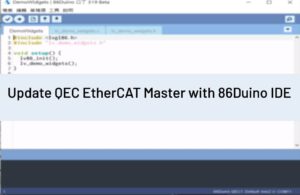[Math]
説明
Re-maps a number from one range to another. That is, a value of fromLow would get mapped to toLow, a value of fromHigh to toHigh, values in-between to values in-between, etc.
Does not constrain values to within the range, because out-of-range values are sometimes intended and useful. The constrain() function may be used either before or after this function, if limits to the ranges are desired.
Note that the “lower bounds” of either range may be larger or smaller than the “upper bounds” so the map() function may be used to reverse a range of numbers, for example
y = map(x, 1, 50, 50, 1);
The function also handles negative numbers well, so that this example
y = map(x, 1, 50, 50, -100);
is also valid and works well.
The map() function uses integer math so will not generate fractions, when the math might indicate that it should do so. Fractional remainders are truncated, and are not rounded or averaged.
Syntax
map(value, fromLow, fromHigh, toLow, toHigh)
Parameters
value: the number to mapfromLow: the lower bound of the value’s current rangefromHigh: the upper bound of the value’s current rangetoLow: the lower bound of the value’s target rangetoHigh: the upper bound of the value’s target range
Returns
The mapped value.
Example Code
/* Map an analog value to 8 bits (0 to 255) */
void setup() {}
void loop()
{
int val = analogRead(0);
val = map(val, 0, 1023, 0, 255);
analogWrite(9, val);
}Appendix
For the mathematically inclined, here’s the whole function
long map(long x, long in_min, long in_max, long out_min, long out_max)
{
return (x - in_min) * (out_max - out_min) / (in_max - in_min) + out_min;
}See also
- [Language] constrain()
Language Reference Home
86Duino のリファレンスのテキストは Arduino レファレンス を編集したもので、 Creative Commons Attribution-ShareAlike 3.0 License下でライセンスされています。リファレンス内のコードサンプルはパブリックドメインとして公開されています。



